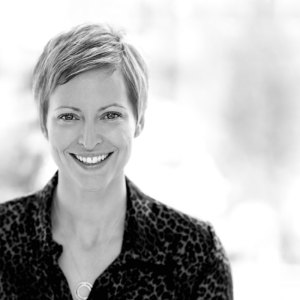Today, Florence Brocklesby, founder of Bellevue Law, shared her inspiring journey from working in top-tier City firms to building a successful 30-person practice. Starting with “no clients whatsoever and a positive mental attitude” from her garden office in 2014, Brocklesby’s story illustrates how the legal profession is evolving to offer new pathways for talented lawyers seeking purpose-driven careers.
The Catalyst for Change: When Flexibility Meant Everything
Brocklesby’s transition began after a five-year career break to raise three young children. When considering her return to legal practice in 2013, she found traditional options limiting. “I couldn’t really see the job that I wanted,” she explained. “The larger firms at the time, it was quite rare to get very much in the way of flexibility.”
Rather than compromise on work quality or family priorities, she made a bold decision: “I didn’t want to compromise on the quality of the work that I was doing. I couldn’t really see the job I wanted, and so I decided to create it for myself.”
This reflects a broader challenge—the loss of experienced talent precisely when lawyers develop their most valuable skills. The traditional firm structure often fails to accommodate life transitions that coincide with peak professional development.
Building from Nothing: First Clients from Unexpected Places
Starting Bellevue Law required navigating SRA authorisation whilst building infrastructure from scratch. The process took three to four months, but Brocklesby’s initial financial investment was minimal. “I did it with almost nothing. We’ve always grown from retaining profits and we’ve grown now to 30 people.”
Her first clients came from an unexpected source: the school playground. “Over the course of the first three months, three separate mothers approached me and said that they needed employment law support because they got challenges around flexible working.” This organic business development highlighted an underserved market: professional women navigating employment challenges.
The Female Talent Hemorrhage
Unlike many lawyers who become highly specialised early, Brocklesby’s diverse background—commercial litigation, international experience, and pro bono leadership—proved advantageous. “I was very lucky in that I was able to offer a broad range of services on day one.”
Her experience reflects a broader industry challenge: “Female senior talent in the legal industry haemorrhages. The model of larger firms is up or out and you need to really put your foot to the floor exactly when you might be thinking about starting a family.”
This creates opportunities for alternative practice models. “I’ve recruited very highly from that talent pool. The really great news is there really are amazing options available, which mean that they don’t need to be lost to the sector.”
Technology as Enabler and Building Purpose-Driven Practice
Regarding AI adoption, Brocklesby advocates a measured approach: “We are going to be medium term adopters. We don’t need to be the pioneers because our clients are not complaining about fees or costs.”
Small firms possess advantages in technology adoption: “Small firms can move quickly, make decisions and implement them quickly.” However, she emphasises human expertise remains central: “What we are selling is insight and holistic support. AI will never replace the knowledge and insight of experts who care about their clients.”
Bellevue Law’s B Corporation certification reflects Brocklesby’s commitment to responsible business practices. “One of the things that I wanted was for the firm to operate very ethically and very sustainably. B Corp certification is a way of publicly holding yourself accountable.”
The certification provided unexpected benefits: “We have gained so much from it in terms of becoming a much more mature business and entry to a community of like-minded businesses.” This includes access to a network of certified law firms sharing ideas about ethical practices.
Lessons Learned: Future-Proofing for Success
Reflecting on her journey, Brocklesby’s primary regret involves being too cautious initially. Despite advice to “build a practice that assumes you’re going to have lots of work,” she began conservatively and later had to rebuild systems.
“My biggest piece of advice would be to future proof the business, set up the processes and systems that you will need in the future, rather than having to change the wheels on a moving car as you go.”
This insight reflects a broader point about entrepreneurial confidence: “Future proof for success rather than failure. The presumption should be ‘I’m gonna be massively successful.’ Why would it not be?”
The Broader Transformation and Future Opportunities
Post-pandemic, flexibility has become more accepted. “Pre pandemic, I would regularly be advising female lawyers making flexible working requests to work one day a week at home and they were being told that wasn’t viable. Now it’s typical to work three days in office, two days from home.”
However, meaningful flexibility encompasses more than location: “Flexible working is much more than where you work. It’s also what your working hours are, whether you have autonomy around when you work and how much you work.”
For lawyers considering similar transitions, the current environment offers unprecedented opportunities. “Lawyers are hugely privileged with amazing skills. They’re extremely marketable, and they can work in a number of different ways.”
Brocklesby’s advice is unequivocal: “If you have a mindset that is creative, that can deal with uncertainty but gets joy from autonomy and being ultimately responsible for building things—just go for it.”
The combination of technological enablement, changing client expectations, and greater acceptance of flexible working creates opportunities for lawyers who can combine excellence with efficiency and a holistic approach to client service. Brocklesby’s journey from garden office to 30-person B Corp demonstrates that with vision and determination, legal entrepreneurs can build practices that serve both professional ambitions and personal values.




